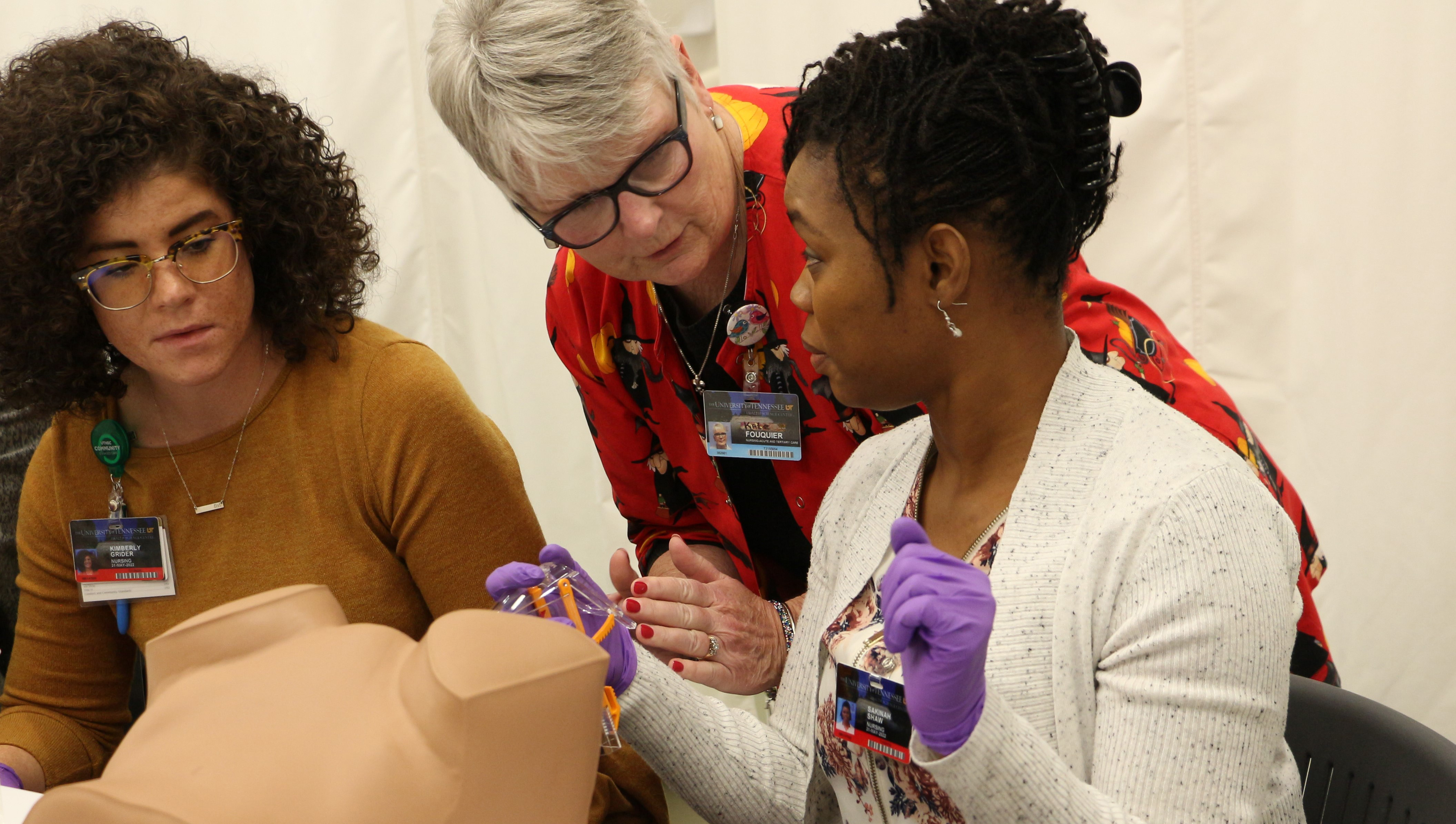DOI
10.21007/con.dnp.2021.0013
Faculty Advisor
Jacqueline Sharp, DNP, APRN, PMHNP-BC
Subject Matter Expert
Jacqueline Sharp, DNP, APRN, PMHNP-BC
Clinical Site
UT Addiction Medicine
Document Type
Poster
Publication Date
Fall 11-23-2021
Disciplines
Analytical, Diagnostic and Therapeutic Techniques and Equipment | Diseases | Health and Medical Administration | Investigative Techniques | Medicine and Health Sciences | Mental and Social Health | Nursing | Nursing Administration | Psychiatric and Mental Health Nursing | Quality Improvement | Substance Abuse and Addiction
Abstract
Purpose/Background Overdose deaths in the U.S. from opioids have dramatically increased since the COVID-19 pandemic. Although medicated-assisted treatment (MAT) programs are widely available for sufferers of opiate addiction, many drop out of treatment prematurely. Twelve-step programs are considered a valuable part of treatment, but few studies have examined the effect of combining these approaches. We aimed to compare abstinence rates among patients receiving MAT who were referred to 12-step programs to those only receiving MAT.
Methods In this prospective study, a cohort of participants from a MAT clinic agreeing to attend a 12-step program was compared to 15 controls selected from a database before project implementation. Eligible participants were diagnosed with OUD, receiving buprenorphine (opiate agonist), and at least 18. Participants were provided with temporary sponsors to attend Narcotics Anonymous, Alcoholics Anonymous, and Medication-Assisted Recovery meetings together. The primary endpoint was the change in positive opiate urine drug screens over 6 months between participants and controls.
Results Between March 29, 2021, and April 16, 2021, 166 patients were scheduled at the clinic. Of those scheduled, 146 were established patients, and 123 were scheduled for face-to-face visits. Of these, 64 appeared for the appointment, 6 were screened, and 3 were enrolled. None of the participants attended a 12-step meeting. Enrollment barriers included excluding new patients and those attending virtual visits, the high percentage of patients who missed appointments, and lack of staff referrals. The low incidence of referrals was due to time constraints by both staff and patients.
Implications for Nursing Practice Low enrollment limited our ability to determine whether combining medication management with a 12-step program improves abstinence. Failure to keep appointments is common among patients with OUD, and virtual meetings are becoming more prevalent post-COVID. Although these factors are unlikely to be controllable, developing strategies to expedite the enrollment process for staff and patients could hasten recruitment.
Recommended Citation
Brown, Candace S.; Williams, Chudney; Stephens, Ryan E.; Sharp, Jacqueline; Bellflower, Bobby; and Zeeman, Martinus T. , "Medicated-Assisted Treatment and 12-Step Programs: Evaluating the Referral Process" (2021). Doctor of Nursing Practice Projects. Paper 13. http://dx.doi.org/10.21007/con.dnp.2021.0013.
https://dc.uthsc.edu/dnp/13
Included in
Diseases Commons, Investigative Techniques Commons, Nursing Administration Commons, Psychiatric and Mental Health Nursing Commons, Quality Improvement Commons, Substance Abuse and Addiction Commons


